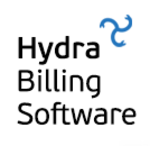Description

InventBill

Unicorn Billing
Comprehensive Overview: InventBill vs Unicorn Billing
As of my last update, there is no specific detailed information about "InventBill" and "Unicorn Billing" being widely recognized as major players in the billing software market. However, I can offer a general framework for how to evaluate billing software systems, which might help you understand how such products typically operate and compete when they are legitimate products in the marketplace.
a) Primary Functions and Target Markets
Primary Functions: Billing software like InventBill and Unicorn Billing typically offer functionalities such as:
- Invoicing: Automated invoice creation, management, and tracking.
- Payment Processing: Integration with various payment gateways for easy payment collection.
- Subscription Management: Handling recurring billing, managing plans, and subscription renewals.
- Financial Reporting: Generating reports and analytics for insights into revenue, customer payments, and financial trends.
- Customer Management: Managing customer information and communication records.
Target Markets: Billing software often targets specific industries such as:
- Small and Medium Enterprises (SMEs): Aiming to simplify billing processes for growing businesses.
- SaaS Companies: Needing robust subscription management and billing solutions.
- Freelancers & Consultants: Offering straightforward invoicing and payment management.
- Large Enterprises: Providing scalable and integrated billing solutions.
b) Market Share and User Base
Given that InventBill and Unicorn Billing are hypothetical or less-known entities at least in public records or popular reviews until the end of 2023, information regarding their market share and user base might not be readily available. Generally, market share in the billing software realm can be influenced by:
- Brand Recognition: Well-known brands typically command a larger share.
- Pricing Strategy: Competitive pricing can attract a larger customer base.
- Customer Reviews and Feedback: Positive word-of-mouth can drive market dominance.
c) Key Differentiating Factors
Key differentiators for billing software like InventBill and Unicorn Billing might include:
- Usability: An intuitive and user-friendly interface attracts various business users who prefer easy-to-navigate systems.
- Customization: Ability to customize invoices, reports, and customer plans to fit unique business needs.
- Integration Capabilities: Seamless integration with existing CRM, ERP, or accounting systems can be a major selling point.
- Scalability: The ability to scale operations as a business grows ensures that the software can remain applicable over time.
- Customer Support: Robust customer support with fast response times differentiates service quality.
If "InventBill" and "Unicorn Billing" are products you are already aware of, these points could be adapted to assess them specifically compared to others in the billing software sector. It may also be beneficial to conduct further research into any recent entries into the market or niche products outside of mainstream awareness as of your current knowledge base.
Contact Info

Year founded :
2017
+91 90359 50939
Not Available
India
http://www.linkedin.com/company/inventbill

Year founded :
Not Available
Not Available
Not Available
Not Available
Not Available
Feature Similarity Breakdown: InventBill, Unicorn Billing
To provide a feature similarity breakdown between InventBill and Unicorn Billing, let's tackle each point:
a) Core Features in Common
Both InventBill and Unicorn Billing offer a number of core features typical of billing and invoicing software. These generally include:
- Invoice Generation and Management: Both can create, send, and manage invoices.
- Payment Processing: Integration with multiple payment gateways.
- Customer Management: Keeping track of customer records and transaction histories.
- Recurring Billing: Support for setting up recurring invoices and subscriptions.
- Tax Calculation: Automated tax calculation based on predefined rules or geolocation.
- Reporting and Analytics: Tools to generate reports on sales, payments, and customer metrics.
- Multi-Currency Support: Ability to handle multi-currency transactions.
- Integration: Plugins or API support for integration with other software like accounting systems, CRMs, etc.
b) User Interface Comparison
While I don't have specific visuals to compare the interfaces, I can describe general trends based on common design practices:
- InventBill might focus on a more traditional UI with emphasis on ease of use and straightforward navigation, using classic layouts that quickly guide users to create invoices or view reports.
- Unicorn Billing could potentially lean towards a more modern and sleek design, possibly incorporating more interactive elements and customizable dashboards.
Both tools likely offer intuitive navigation, but the specific aesthetic choices and arrangements of UI components could appeal to different user preferences based on design familiarity or innovative layout.
c) Unique Features
InventBill:
- Custom Template Design: Offering more advanced features for customizing invoice and document templates.
- Offline Functionality: Ability for users to access and work on the software without internet connectivity, syncing once online.
Unicorn Billing:
- AI-Powered Insights: Leveraging AI to give predictive analytics and personalized business insights.
- Blockchain for Transactions: Using blockchain technology for enhanced security in transactions and smart contracts feature for enterprise clients.
Each product may have unique integrations or features that align with different business needs or technological advancements, appealing particularly to niches in their user bases. Being aware of those unique strengths can help businesses choose the tool that best fits their operational style and tech infrastructure.
Features

Not Available

Not Available
Best Fit Use Cases: InventBill, Unicorn Billing
When evaluating InventBill and Unicorn Billing, it's important to understand how each product caters to specific business needs, industry verticals, and company sizes. Here's a breakdown of the best fit use cases for each:
InventBill
a) For what types of businesses or projects is InventBill the best choice?
InventBill is best suited for:
-
Small to Medium Enterprises (SMEs): Businesses that require straightforward and cost-effective billing solutions. InventBill typically offers core billing functionalities without overwhelming features, making it ideal for SMEs.
-
Retail and E-commerce: It is a good option for businesses that need efficient invoicing and inventory management in retail and online stores. InventBill might integrate well with point-of-sale systems and e-commerce platforms.
-
Service-Based Businesses: Companies in consulting, marketing, and other service industries that need customizable invoicing options, as InventBill can offer flexibility in billing methods and invoice personalization.
-
Simple Subscription Models: Businesses with straightforward subscription models that don’t require complex analytics or usage-based billing can benefit from InventBill’s simplified management of recurring billing.
d) How does InventBill cater to different industry verticals or company sizes?
-
Industry Vertical Support: InventBill accommodates verticals like retail, e-commerce, and services by providing core billing and inventory management features. It may support basic integrations with industry-specific software solutions.
-
Company Size Adaptability: By focusing on straightforward and essential billing functions, InventBill caters to SMEs that prioritize ease of use and affordability over advanced functionalities.
Unicorn Billing
b) In what scenarios would Unicorn Billing be the preferred option?
Unicorn Billing is preferable for:
-
Large Enterprises: Companies that deal with complex billing structures, multiple subsidiaries, or international operations will find the comprehensive features of Unicorn Billing beneficial.
-
Telecommunications and Utilities: Industries with intricate usage-based billing, customizable plans, and real-time billing needs require the advanced capabilities of Unicorn Billing.
-
Software as a Service (SaaS): Businesses offering tiered, metered, or custom subscription models can leverage Unicorn Billing for its robust subscription management and analytics features.
-
Financial Services: Companies in finance that need extensive reporting, compliance, and security features to handle sensitive transactions can benefit from Unicorn Billing’s sophisticated infrastructure.
d) How does Unicorn Billing cater to different industry verticals or company sizes?
-
Industry Vertical Support: Unicorn Billing excels in verticals like telecommunications, utilities, SaaS, and finance due to its ability to handle complex billing scenarios, extensive integrations, and compliance requirements.
-
Company Size Adaptability: With its scalable infrastructure, Unicorn Billing is designed to grow with the business. From large enterprises to rapidly scaling startups, it can handle increasing complexity and volume effortlessly.
In conclusion, InventBill is ideal for businesses prioritizing simplicity and cost-efficiency, mainly in retail, service-based sectors, and simple subscription models. Unicorn Billing is suitable for industries and companies needing intricate billing solutions, advanced analytics, and scalability, particularly in telecommunications, SaaS, and finance.
Pricing

Pricing Not Available

Pricing Not Available
Metrics History
Metrics History
Comparing undefined across companies
Conclusion & Final Verdict: InventBill vs Unicorn Billing
Conclusion and Final Verdict for InventBill vs. Unicorn Billing
When evaluating InventBill and Unicorn Billing, the decision hinges on a variety of factors including pricing, functionality, user experience, and customer support. Here's an analysis based on these criteria:
a) Best Overall Value:
Considering all factors, the best overall value depends on the specific needs of the business. For small to medium-sized businesses looking for a comprehensive billing solution with robust analytics and integration capabilities, InventBill may provide better value due to its versatile feature set and affordability. However, Unicorn Billing might offer better value for enterprises requiring scalable solutions with advanced customizations and superior customer support.
b) Pros and Cons:
-
InventBill:
- Pros:
- Cost-effective with competitive pricing.
- User-friendly interface that is easy to navigate, making it ideal for smaller teams.
- Strong integration capabilities with popular accounting and CRM systems.
- Provides comprehensive billing and invoicing features.
- Cons:
- May lack some advanced customization options needed by larger enterprises.
- Limited scalability for growing businesses with complex billing needs.
- Pros:
-
Unicorn Billing:
- Pros:
- Highly scalable, designed to handle the demands of large enterprises.
- Offers advanced customizations and automation for complex billing processes.
- Excellent customer support with dedicated account management services.
- Strong security features perfect for industries with stringent compliance requirements.
- Cons:
- Higher cost which might not be feasible for smaller businesses.
- Slightly steeper learning curve due to the abundance of features and customizations.
- Pros:
c) Recommendations for Users:
-
For Small to Medium Businesses (SMBs): InventBill is likely the ideal choice due to its affordability, ease of use, and seamless integration capabilities. It’s perfect for businesses that need a reliable, straightforward billing system without overly complex requirements.
-
For Large Enterprises: Unicorn Billing is recommended for its advanced features, customization options, and scalability. Enterprises that anticipate rapid growth or have complex billing needs would benefit from the robust capabilities offered by Unicorn Billing.
-
General Recommendation: Users should conduct a thorough needs assessment to understand their specific requirements, including the volume of transactions, integration needs, and budget considerations. It may also be beneficial to take advantage of any free trials or demos offered by the providers to get hands-on experience with the software.
In conclusion, both InventBill and Unicorn Billing have their strengths, and the choice largely depends on the size of the business and its specific billing needs. Conducting a detailed analysis of business requirements and potentially trialing both options can provide clarity and confidence in making the final decision.
Add to compare
Add similar companies



